Like myself, many of the MiddKids with whom I frequently interact are people of color. While I am a Californian from Los Angeles, many of the students I serve are New Yorkers and they employ a vivid use of language I have yet to encounter outside of the North. In a loosely anthropological study, I have prepared the briefest of satirical dictionaries to highlight some of my favorite uses of the students’ slang. Let me know if I get them right– or, more likely, wrong. And also, like, #fuhrealsies, use the tips. Here are five examples of contemporary slang in trying times, used in *completely* fictional scenarios ;). Some hyperbole is used for dramatic effect:
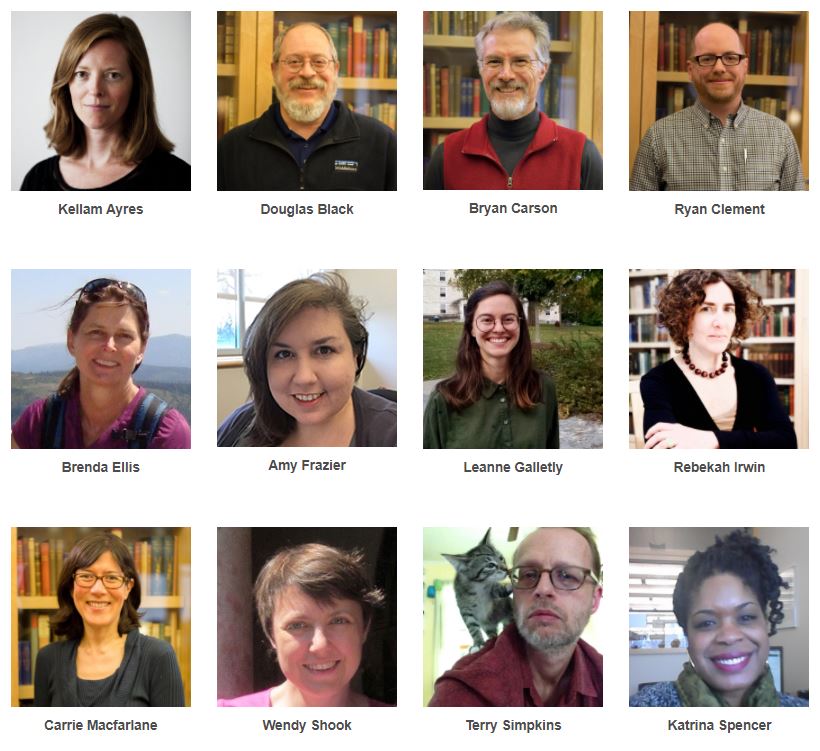
The Middlebury College librarians are pictured here. Make an appointment with any one of them by visiting go.middlebury.edu/librarians.
brand new | This adjective is used in a scenario when a person acts as though information is novel to them and a speaker wants to call out their interlocutor’s inauthenticity. Example of usage:
Speaker 1: Aw, man! I only have two of five required sources and my prof set the deadline for this paper at 5:00 p.m. today. There’s no way I can turn it in tomorrow.
Speaker 2: Who? Prof. Jenkins! You been knowin’ that. That’s her standard practice. Stop actin’ brand new!
Tip: Monday through Friday, you can make a one-on-one appointment with a librarian and get all the sources you need. Visit go.middlebury.edu/librarians.
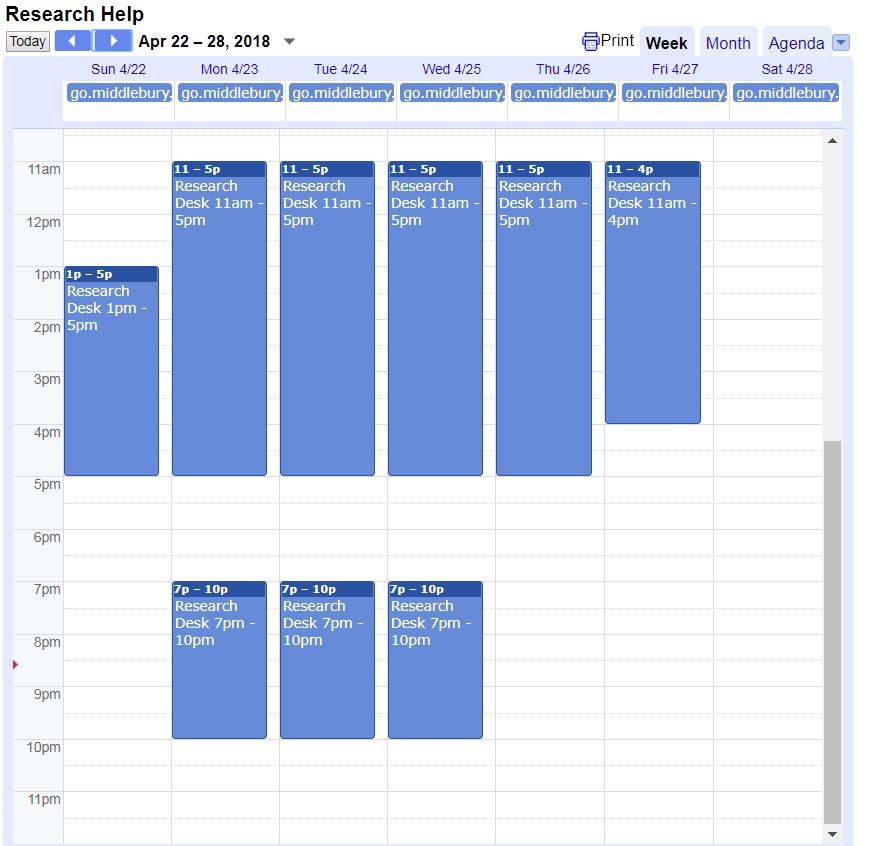
Depicted, review the hours the Research Desk is staffed for the third week of April 2018: Sunday 1-5 p.m.; Monday- Wednesday from 11 a.m. – 5 p.m. and 7 p.m.- 10 p.m.; Thursday from 11 a.m.- 5 p.m.; and Fridays 1- 5 p.m.
deadass | an interjection used to express unquestioning support and/or fealty for a premise, suggestion, opinion or idea. It is synonymous with “seriously.” This term is often used in a deadpan fashion, its understated delivery lending irony to its meaning. It is often accompanied by meaningful glances for emphasis. Example of usage:
Speaker 1: Yo, so um… this paper is 40,000 pages long and it’s due in 5 minutes. I’ma haveta request an extension.
Speaker 2: Deadass. Me, too!
Tip: If you need help orienting your 40,000 page paper, librarians staff the Research Desk over 40 hours a week. See our hours at go.middlebury.edu/hours.
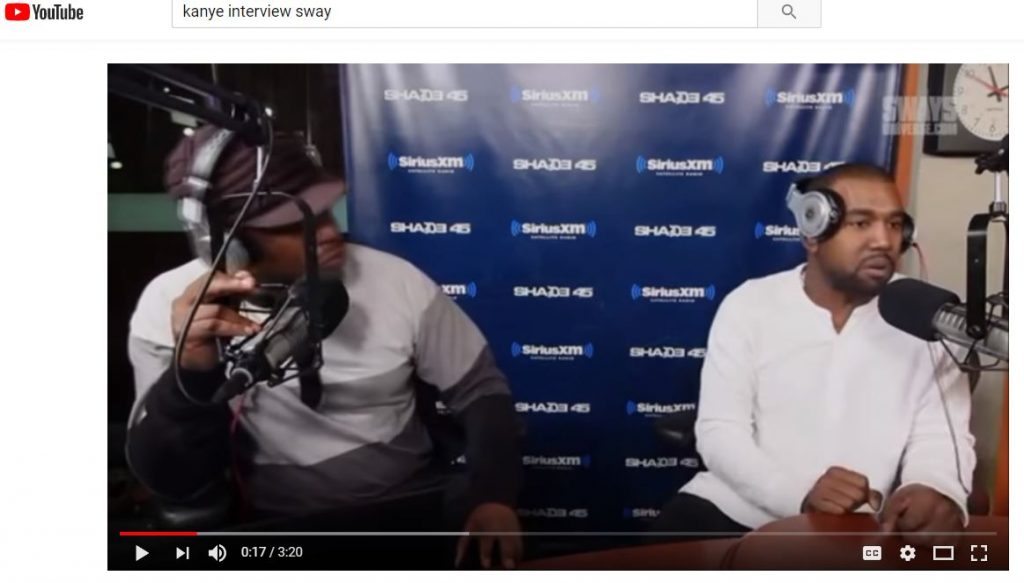
A screenshot from an interview with a radio deejay named Sway and Kanye West, the supposed origin of the phrase, “How, Sway?”
How, Sway? | This interrogative is a rhetorical device used to express befuddlement when one is facing an incredulous situation. It is synonymous with, “That’s ridiculous!” Note: no one posing this question actually wants an answer. This term is often accompanied by meaningful glances and gesticulations for emphasis. Example of usage:
Speaker 1: I’m about to write this paper and edit my bibliography before my night shift in 30 minutes.
Speaker 2: How, Sway? You are a whole procrastinator.
Tip: If your works cited list needs a touch up, there’s a research guide dedicated specifically to citations at go.middlebury.edu/citations. You can also ask for help at the Research Desk in the Davis Family Library.
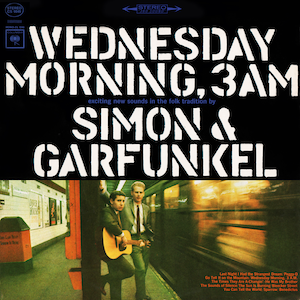
Cover Art for a Simon and Garfunkel album, Wednesday Morning, 3AM, which includes the track “Sound of Silence.”
shook | Used with the first person singular, this adjective is used to describe one’s state when they are rattled, surprised or overwhelmed with emotion. It is occasionally synonymous with the more hegemonic, “I can’t even,” and often accompanied by meaningful, unfocused stares into the distance. Example of usage:
Speaker 1: Did you hear? The prof canceled their term paper altogether and was like, “Bucket.”
Speaker 2: What?! I can’t believe that. That must be an urban legend.
Speaker 1: I know, right?! But then I saw the receipts!
Speaker 2: [look of surprise] I’m shook.
[Cue: ♪♪♪ “The Sound of Silence” by Simon & Garfunkel. Lyrics: “Hello, darkness, my old friend…” ♪♪♪]
Tip: For those of you not living a mythology, plan out your papers with writing tutors at the Center for Teaching, Learning and Research (CTLR) in the Davis Family Library, main level. Make an appointment at go.middlebury.edu/appt.
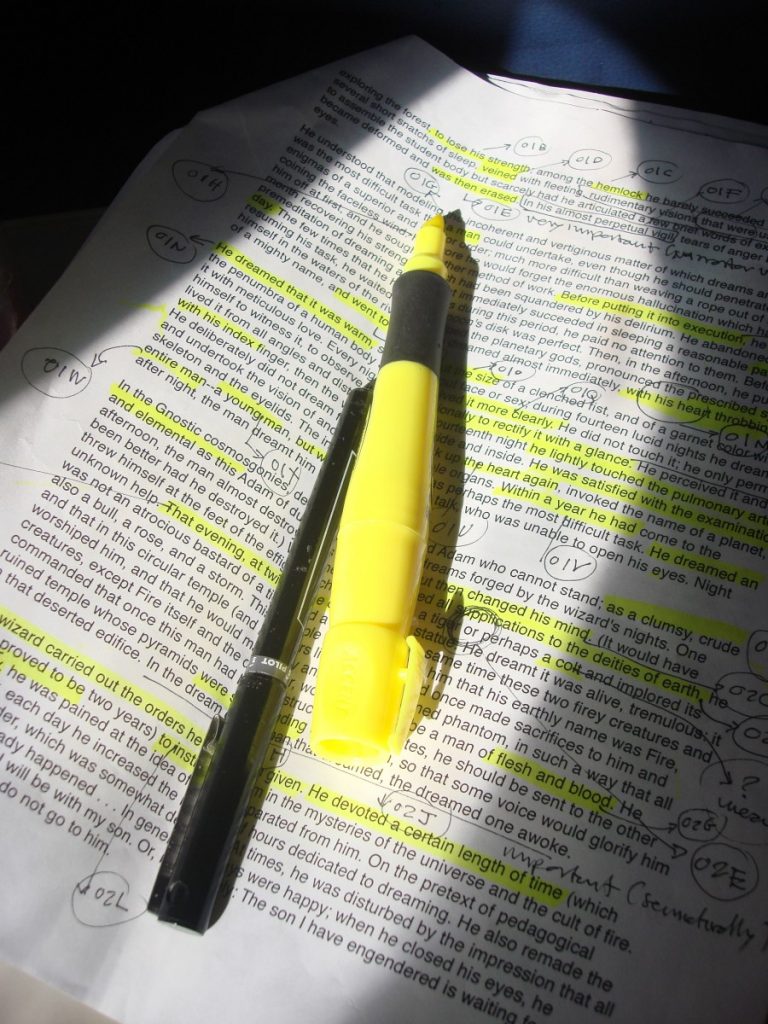
A yellow highlighter
weak | Always used in conjunction with the first-person singular pronoun or perhaps a hashtag, this term expresses that the speaker is humored or “tickled” by their interlocutor’s musings. Curiously, for emphasis, this phrase is often unaccompanied by meaningful glances, eye contact or even laughter. Example of usage:
Speaker 1: Last night I tried to finish the last reading for class.
Speaker 2: An’ wha’ happen?
Speaker 1: I woke up, rested– drool on the book and highlighter all over my face.
Speaker 2: I’m weak.
Tip: If you need a quiet space to study that is not your dorm room, where the tempting sheets of doom call you to your bed, use go.middlebury.edu/groupstudy to reserve a room in the libraries.
For etymologies/origins of the studied terms, please contact Spanish and Linguistics professor Dr. Marcos Rohena-Madrazo or refer to urbandictionary.com. For “highkey” and “lowkey,” see Athena. For “I’m dead,” see Rahat. For “Yikes!,” talk to Treasure. I’d offer you Kory Stamper’s Word By Word: the Secret Life of Dictionaries, but it’s currently checked out to me, so. . .
https://giphy.com/gifs/bye-well-yikes-l0HlvtIPzPdt2usKs